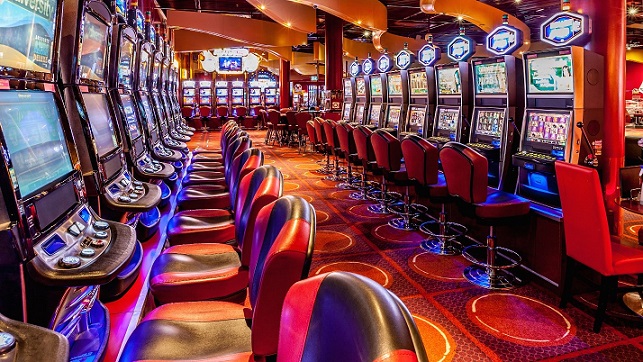In the world of gambling, where chance and strategy converge, a unique tapestry of beliefs unfolds—one that intertwines luck, fate, and the enigmatic nature of casino games. Casinos, bustling with excitement and anticipation, are not just places for placing bets; they are also arenas where superstitions thrive. From the novice player to the seasoned gambler, these mysterious practices often shape how individuals approach the games they play, holding the belief that their actions can influence the outcome in ways that go beyond mere probability.
As players gather around roulette wheels, blackjack tables, and slot machines, the atmosphere is thick with stories of lucky charms, rituals, and codified behavior that defy logic yet provide a sense of comfort. Whether it’s wearing a specific outfit, following a particular sequence of bets, or even avoiding certain numbers, the attachment to various superstitions reflects a deep-rooted desire to manipulate the uncontrollable. This article delves into the captivating world of casino game superstitions, examining the beliefs that both entertain and mystify those who dare to play.
Historical Roots of Superstitions
Casino games have long been connected with an host of superstitions that trace to ancient societies. The beginnings of these beliefs can be associated to humanity’s fundamental need to manage the uncertain outcomes connected with luck and randomness. In early civilizations, activities of chance were often tied to ritualistic practices. Gamblers would invoke favor or request favor from spirits, believing that their actions could affect the results in their favor. This basis laid the foundation for the myriad of superstitions that developed as betting evolved over centuries.
During the medieval period, betting became a popular pastime across European nations, and with it, a rich tapestry of superstitions emerged. Players adopted different rituals and charms, believing they could affect the consequences of games. The significance of digits, in particular, began to appear in superstitions related to card games and dice. The number 7 was often considered auspicious, while various numbers carried negative connotations. These ideas mirrored the societal contexts of the time, evolving as they passed through generations and transformed to new gaming environments.
As gaming establishments developed in the 1600s, particularly in the Italian peninsula and the French nation, the atmosphere surrounding gambling became steeped in mystique. The growing accessibility of casino activities allowed for the expansion and diversification of superstitions among players. Concepts like charmed charms, designated seating arrangements, and rituals gained prevalence, creating a unique culture within betting houses. As these traditions continued to thrive, they became integral to the character of gambling games, illustrating how the past and society shape the convictions that influence how players engage with chance. Bắn cá 99win
Popular Gambling Myths
Superstitions surrounding casino activities are plentiful and diverse, reflecting the hopes and fears of players as they participate in random games. One of the most prevalent views is that certain numbers bring fortune or misfortune. For example, the digit 7 is often seen as a favorable digit, frequently sought after by gamblers looking for a favorable outcome. Conversely, the number 13 is routinely considered unlucky, leading many players to avoid it during their gambling sessions.

Another common belief relates to practices that players believe can affect their odds. It could be blowing on dice before a roll, using a particular gesture to place a wager, or even wearing specific items of clothing, many people feel that these actions can sway fate in their benefit. These practices offer a sense of control in an otherwise random environment, reinforcing the idea that luck can be manufactured through personal beliefs and habits.
Finally, the environment and atmosphere of the casino itself adds to superstition. 99win Many players suggest that the presence of specific symbols, such as four-leaved clovers or lucky tokens, can enhance their chances of success. Additionally, gamblers might hold to the belief that victory streaks can be interrupted by mundane occurrences, such as someone walking past or a spill at the table. The collective atmosphere in a casino can amplify these beliefs, creating a shared culture of superstitions that transcends single experiences.
Impact of Superstitions on Players
Beliefs play a important role in the mindset of gamblers, often affecting their behavior and choices. Numerous gamblers believe that luck can be influenced through different rituals, such as donning a talisman, choosing particular hues, or avoiding certain numbers. This dependence on superstitions can create a feeling of control in an environment that is intrinsically unpredictable. Players frequently feel more self-assured and involved when they believe that their actions could sway the result of a game in their advantage.
The influence of these superstitions extends past singular players, affecting the general atmosphere inside the casino. For example, a player who believes in the luck of a particular slot machine might attract a crowd, as others are fascinated by their apparent luck. This shared belief can amplify excitement and create a lively environment, leading to an interesting experience even for those who may not necessarily be believers themselves. The buzz around certain games can lead to higher participation and longer playing sessions, supporting the casino’s lively social scene.
In some cases, superstitions can lead to detrimental effects for players. Relying too heavily on rituals can result in bad gambling decisions, as some may ignore basic strategies in favor of baseless beliefs. Additionally, the pressure to perform rituals may increase anxiety and tension, diminishing from the pleasure of the experience. Ultimately, while superstitions can enhance the excitement of playing casino games, they can also lead to unwise choices that overshadow the fun and amusement intended in the casino experience.